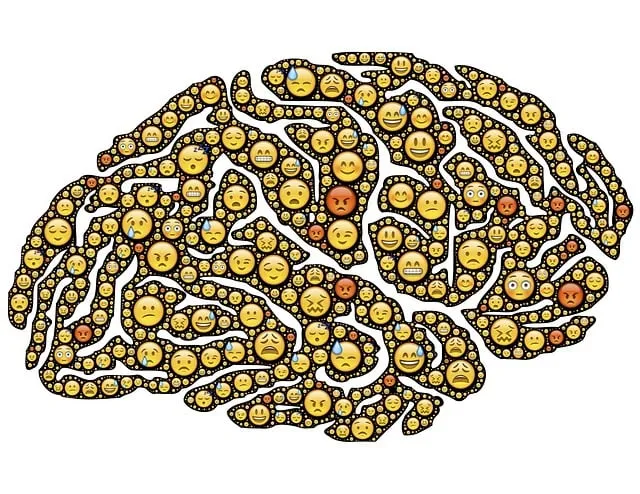Cultural sensitivity is crucial for high-quality mental healthcare in diverse communities like Englewood, where professionals must recognize how cultural backgrounds shape individuals' experiences and behaviors. Kaiser Permanente Englewood excels in this area by integrating cultural competence into its practices: adjusting risk assessment, modifying evaluation methods to account for cross-cultural differences, and employing sensitive approaches to build resilience. This tailored support enhances positive thinking and overall well-being, ensuring effective treatment for all patients. Through diverse provider teams reflecting the community, specialized services are offered that respect individual beliefs and values, improving patient outcomes and strengthening healthcare-patient relationships. The Kaiser Permanente mental health phone number Englewood is a valuable resource for urgent needs, providing access to culturally sensitive care.
“Cultural sensitivity is a cornerstone of modern mental healthcare, ensuring equitable and effective treatment for all. This article delves into the vital role it plays in addressing diverse patient needs. We explore how cultural differences significantly impact mental health treatment outcomes, highlighting successful initiatives like Kaiser Permanente Englewood’s focus on culturally competent care.
Through practical strategies, we guide professionals on building trust and enhancing communication to improve patient experiences, ultimately revolutionizing mental healthcare practices.”
- Understanding Cultural Sensitivity: A Cornerstone of Mental Healthcare
- The Impact of Cultural Differences on Mental Health Treatment
- Kaiser Permanente Englewood: A Focus on Culturally Competent Care
- Strategies for Building Trust and Effective Communication
- Enhancing Patient Outcomes through Cultural Sensitivity in Practice
Understanding Cultural Sensitivity: A Cornerstone of Mental Healthcare

Cultural sensitivity is a cornerstone of effective mental healthcare practice, reflecting an understanding that people’s experiences and perspectives are shaped by their cultural backgrounds. This awareness is particularly crucial when addressing mental health concerns among diverse populations, as it ensures tailored support and respectful interactions. In today’s interconnected world, mental healthcare professionals must navigate the complex tapestry of cultural differences to deliver quality care, especially in areas like Englewood, where communities may hold varied norms and values.
For instance, a comprehensive approach involves integrating cultural competence into risk assessment for mental health professionals. This includes recognizing that certain behaviors or expressions might have different meanings across cultures and adjusting assessment methods accordingly. Moreover, fostering resilience through culturally sensitive practices can enhance positive thinking and overall well-being. By understanding and embracing these nuances, professionals like those at the Kaiser Permanente mental health phone number Englewood can create a supportive environment, promoting healing and growth for all individuals they serve.
The Impact of Cultural Differences on Mental Health Treatment

Cultural differences play a significant role in shaping individuals’ mental health experiences and treatment preferences. When providing mental healthcare services, especially in diverse communities like Englewood, understanding cultural nuances is essential. For instance, patients from different ethnic backgrounds may have unique perceptions of mental illness, coping mechanisms, and preferred treatment modalities. What works for one individual might not be suitable or effective for another due to these cultural variations.
For example, a patient from a community with a strong collective culture might prefer family involvement in therapy, while an individual from an individualistic background may seek more personalized, private treatment. At Kaiser Permanente mental health phone numbers like Englewood, professionals must adapt their practices and build trust through empathy-driven approaches. Implementing self-awareness exercises and conflict resolution techniques can help healthcare providers bridge these cultural gaps, ensuring that every patient receives respectful, culturally sensitive care tailored to their specific needs.
Kaiser Permanente Englewood: A Focus on Culturally Competent Care

Kaiser Permanente Englewood stands as a beacon of culturally competent mental healthcare, offering specialized services tailored to diverse patient needs. Their approach is deeply rooted in understanding and respecting different cultural backgrounds, ensuring every individual receives care that aligns with their unique beliefs and values. This commitment extends beyond mere awareness; it’s a fully integrated system where cultural sensitivity is the cornerstone of treatment.
By prioritizing culturally competent care, Kaiser Permanente Englewood enhances the effectiveness of therapy. They recognize that stress management and risk assessment for mental health professionals are crucial aspects of providing inclusive care. Through continuous training and education, their staff boosts confidence in managing diverse populations, fostering a safe and supportive environment. This comprehensive strategy not only improves patient outcomes but also strengthens the bond between healthcare providers and those seeking mental wellness.
Strategies for Building Trust and Effective Communication

Building trust and establishing effective communication are paramount in cultural sensitivity within mental healthcare practices. One strategy to foster trust is by ensuring diversity and representation among healthcare providers, reflecting the communities they serve. This approach aligns with Kaiser Permanente’s commitment to diverse teams, offering guidance on mental health issues tailored to various cultural backgrounds. For instance, a provider from Englewood, New Jersey, can offer unique insights into the challenges faced by African American communities, facilitating more empathetic care.
Additionally, active listening and open dialogue are essential tools. Encouraging patients to express their concerns and experiences, especially in a safe and non-judgmental environment, strengthens the therapeutic relationship. This process can be enhanced through techniques like reflective listening, where healthcare professionals paraphrase and mirror back the patient’s emotions to ensure understanding. Such practices improve communication, making complex conversations more manageable, particularly during crisis interventions or when exploring sensitive topics related to mental wellness journaling exercises.
Enhancing Patient Outcomes through Cultural Sensitivity in Practice

Incorporating cultural sensitivity into mental healthcare practice is a game-changer when it comes to enhancing patient outcomes. By understanding and respecting patients’ cultural backgrounds, beliefs, and values, healthcare providers can create a safe and supportive environment that fosters open communication. This approach is especially crucial for organizations like Kaiser Permanente, with its diverse patient population, including those seeking services through the Englewood mental health phone number.
Cultural sensitivity allows for tailored treatment plans that address unique psychological and social factors. For instance, compassion cultivation practices and burnout prevention strategies for healthcare providers can be adapted to boost confidence and resilience among patients from different cultural walks of life. These personalized interventions not only improve patient satisfaction but also lead to more effective and lasting mental health outcomes, ensuring that every individual receives care that resonates with their cultural identity.
Cultural sensitivity is a vital aspect of providing effective mental healthcare, ensuring that individuals from diverse backgrounds receive personalized and compassionate treatment. As highlighted by examples like Kaiser Permanente Englewood’s commitment to culturally competent care, integrating cultural awareness into practice improves patient outcomes and fosters trust. By employing strategies such as active listening and adapting communication styles, mental health professionals can create inclusive environments that honor individual beliefs and traditions. For those seeking support, the Kaiser Permanente mental health phone number in Englewood serves as a gateway to culturally sensitive care, reflecting a broader trend in the industry to enhance services for all communities.






